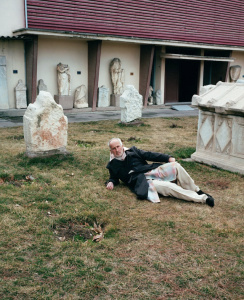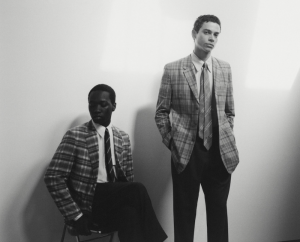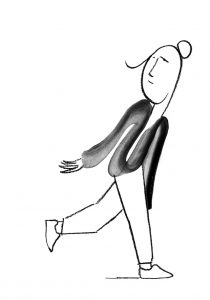From his breakout performance as Martin Luther King Jr in Selma to playing Henry VI at the Royal Shakespeare Company, David Oyelowo has consistently sought roles that challenge both himself and the narratives that surround Black actors. In Government Cheese he takes a turn into surrealist comedy, playing a man caught between redemption and survival. He speaks about risk, reinvention, and why every performance should feel like a leap into the unknown
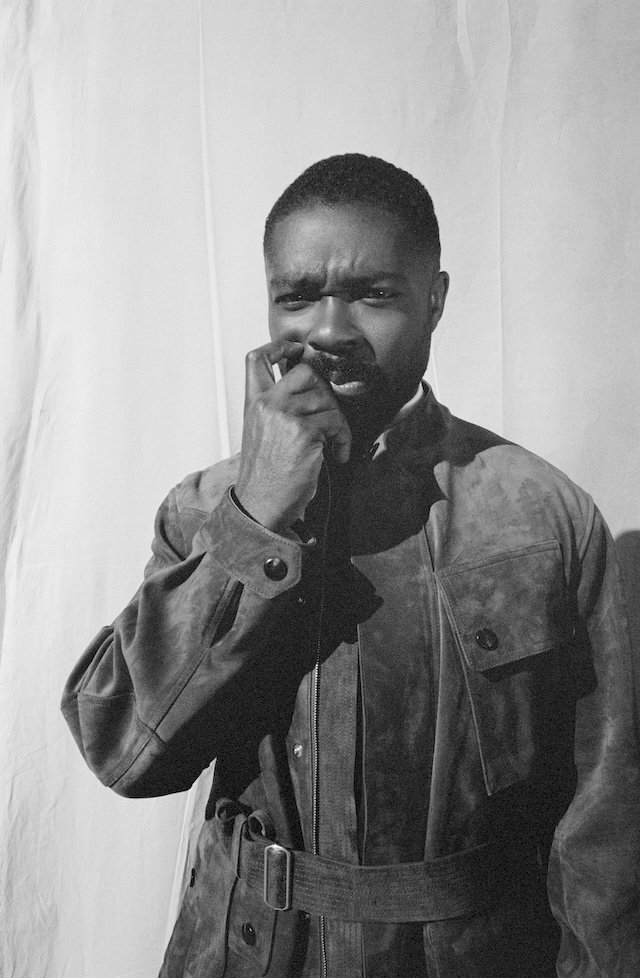
In the surrealist comedy Government Cheese, actor David Oyelowo’s character, Hampton Chambers, breaks into a synagogue. Desperate to live a more honest life post-incarceration and hoping this will be his last immoral act before committing entirely to the straight and narrow, the father of two insists this misdeed must be done “respectfully”. Starting with a small prayer, he and his friend don black yarmulkes before entering the religious institution to rob its safe. “I can’t wear this, it’s blasphemy,” his friend protests. “It’s blasphemy if you don’t,” he replies. The scene perfectly exemplifies the show’s absurdity while highlighting how desperation can lead someone down a dark path. For Oyelowo, that tension – between morality and survival – was what drew him to the project. “It is indicative of his character – caught between a rock and a hard place of his own making,” Oyelowo says over Zoom from his home in Los Angeles. “He needs to go down the path of righteousness, and he just can’t quite stay the course.”
For many fans it will be a pleasant surprise to see the British actor in something so whimsical, having made a name for himself through a number of hard-hitting roles on film and stage. But what Apple TV’s Government Cheese reveals is how the 48-year-old is unafraid to step outside of his comfort zone. “The script was unlike anything I’d read before,” he says. “What I loved was how Bible stories – whether the flood or Jonah in the whale – somehow intersected with this guy’s life in a parabolic, surrealist way.”
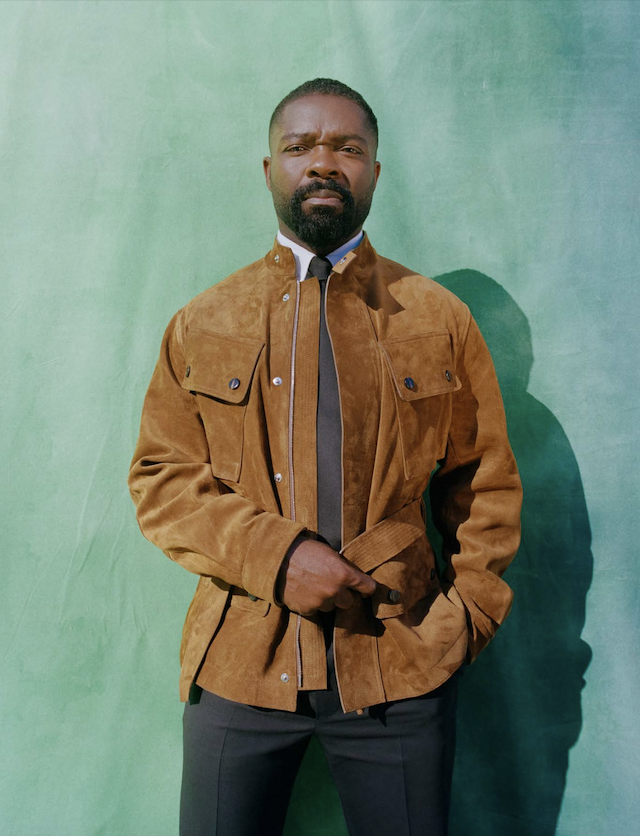
After relocating to California from the UK in 2007 in search of more opportunities, Oyelowo found his breakthrough role in the US in 2014 when he portrayed Martin Luther King Jr in the historical drama Selma. The film follows Dr King during his 1965 march from Selma, Alabama, to the state capital of Montgomery, in a bid to secure equal voting rights. “I had loved the film Malcolm X growing up, so being central in a film like that was a big deal for me,” he says. Before Selma, he says, there were few portrayals of Dr King in film despite him being “arguably, one of the most important figures in the 20th century”.
That same year HBO’s streaming film Nightingale was released, which IndieWire dubbed the best performance of Oyelowo’s career so far. In this film, Oyelowo plays a war veteran descending into madness after committing a heinous crime. The one-man movie, which won him a Critics’ Choice Television Award for Best Actor, takes viewers on a harrowing journey as his character’s breakdown becomes increasingly more unpredictable. “That’s a prime example of me wanting to scare myself. I remember I walked into my agency at the time and said, ‘Look, I really want to shake things up. I want to do work that is unexpected to me and the audience,’” he explains. “And then they sent me this script, which had me going, ‘Oh dear – I may have finally got more than I can do here,’” he jokes.
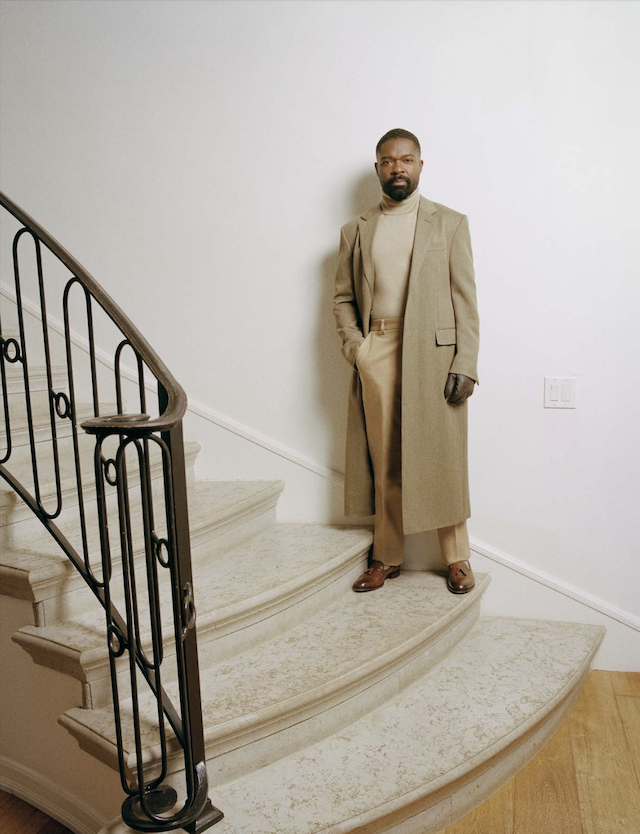
Oyelowo’s exceptional talents extend beyond the screen. In 2001, he made history as the first Black actor to play the King in the Royal Shakespeare Company’s production of Henry VI. At the end of last year, he starred as Coriolanus at the National Theatre, where he transformed into a man with distinctively bulging muscles for the role. He sees this as part of the job. “How I feel in my body, how I look, how I sound, whether it’s the quality of the voice or the accent, these are all the tools for stepping towards the character,” he explains. “If you are heavier on set, you carry your body in a slightly different way. Your voice even sounds a little bit different and the way other characters react to you is different.”
For Oyelowo, theatre can be a true test of an actor’s abilities. “Doing plays, especially Shakespeare, is the Everest for actors; if you can do that you feel like you can do almost anything,” he says, noting that being on stage is also when he feels most connected to viewers. “There’s this unspoken contract made between the audience and the actors that we are going on this journey,” he adds. “We’re all going to stick with it and see where we land on the other side of these two to three hours, and that’s a very special thing.”
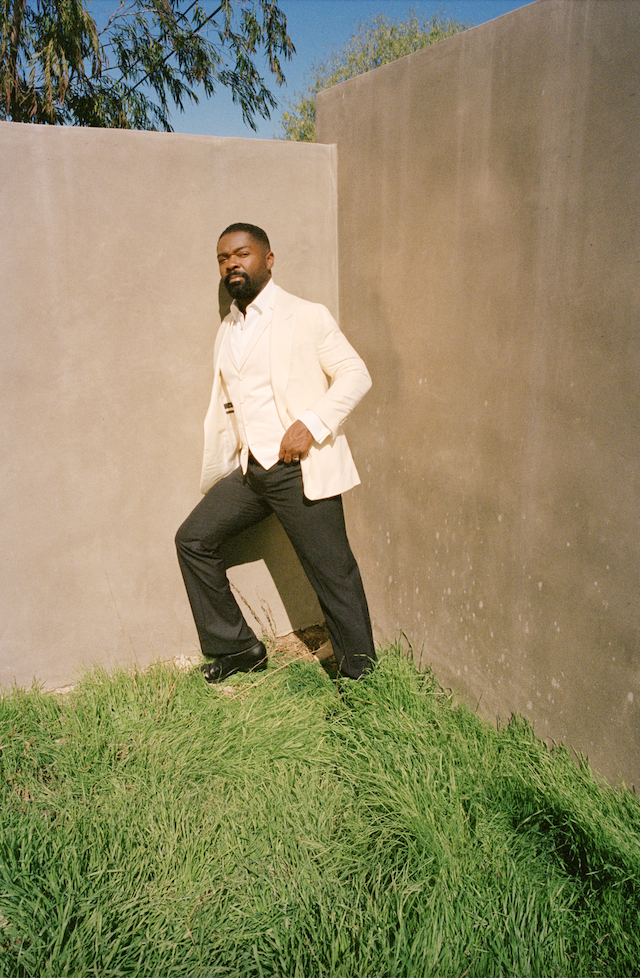
It’s no surprise that Oyelowo feels at home on stage, given its role in his early acting career. A film and TV enthusiast growing up, he had done a few plays but never saw acting as his future. That changed at 15 when a girl from his church invited him to the National Theatre – on what he hoped was a date. “I’d done a few plays that I’d really enjoyed, but it was never something I thought I was going to spend my life doing,” he says. While romance didn’t blossom with her, he fell in love with the craft instead. At the National Theatre he was struck by “a bunch of young people who really took it, I don’t want to say seriously, but they were passionate,” he says. “I eventually got cast in the lead for a play.”
He points out my Nigerian background and similarity in the views our parents might have had of the creative industries. “I actually think it’s changed now, but certainly when I was younger, the idea of being an actor or being in the arts was not something that my parents were over the moon about,” he says. “I can spot from your name that you are probably Nigerian like me, so you’ll know what I mean.” I did. That said, a turning point in gaining his parents’ support came at the National Theatre when his late mother visited one of his performances. “I just remember her looking at me a little bit differently. I think she had seen something in me during that play that she didn’t know was in there.”
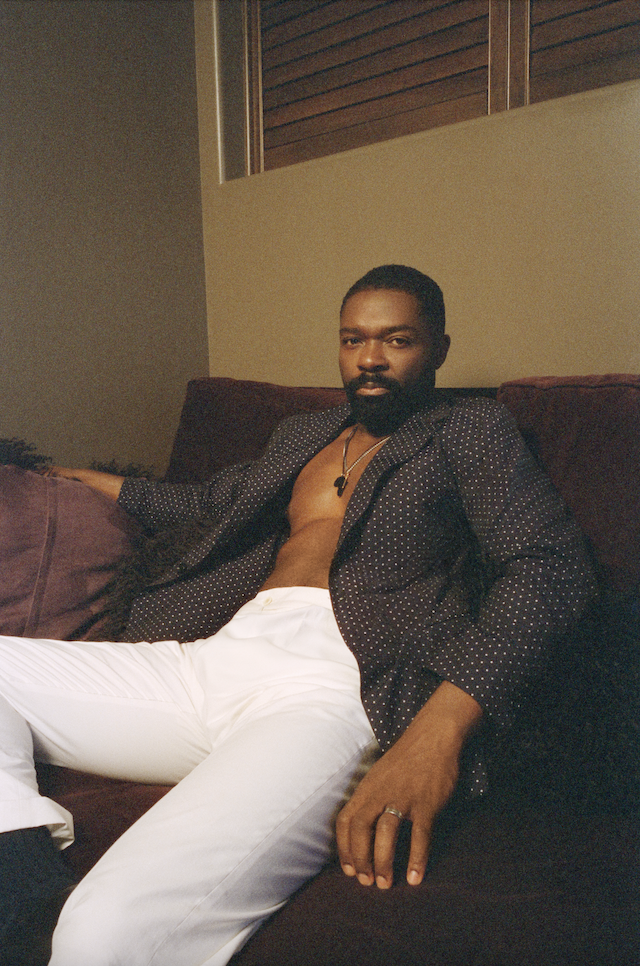
In every role that he plays, Oyelowo hopes to move away from the negative stereotypes about Black people. “As a Black person and a very proud African person, I am drawn to stories that reveal the other side of the narrative,” he says. Society still carries “too many negative stereotypes and misconceptions of who and what we are” he adds, citing this as a result of what has been seen on TV and in film. “I was so proud to play Dr King because he’s an aspirational character as opposed to a criminal, slave or despot, which I think we’ve seen too much of,” he says. “It’s also why I’m so proud of [the 2016 biographical romantic drama] A United Kingdom, where I play an African king who’s in love with his wife, but also loves his people and fights on their behalf.”
Ironically, Government Cheese is about a criminal, yet it feels like an understandable exception to Oyelowo’s rule. The series teeters between both a crime and a redemption story, but never fully settles with either. Based in southern California in the 1960s, the eccentric Wes Anderson-esque show is created and directed by writer and filmmaker Paul Hunter, and executive produced by Oyelowo himself under his production company, Yoruba Saxon. It follows Hampton Chambers, who tries to get his life on track and win back the love of his disappointed family after being formerly incarcerated for low-level crime. “He’s constantly trying to cheat his way into his future, but his heart is in the right place in relation to wanting to provide the best for his family, wanting to move ahead and wanting to be successful,” Oyelowo explains.
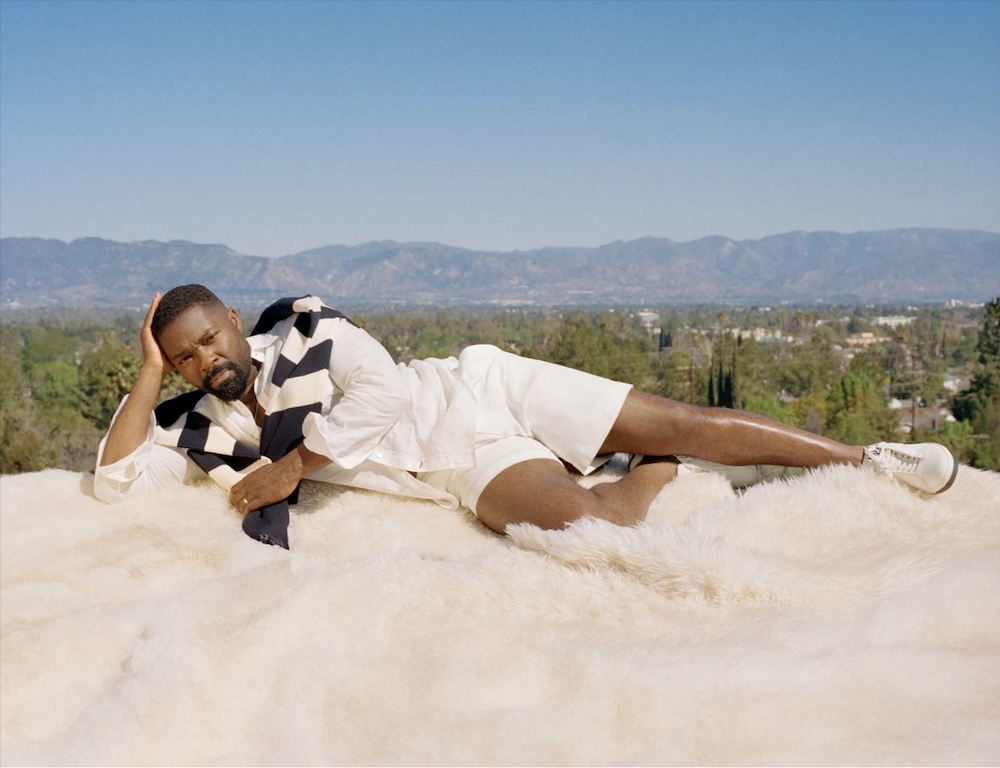
Chambers creates a unique invention which is sure to lift him out of his financial struggles: the Bit Magician, a self-sharpening power drill. “Woven into his coding is this thing of ‘just take this little shortcut’.” Alongside this storyline “you have this very quirky family that don’t think of themselves as quirky, but as an onlooker, you’re going, what is this family? And I can relate to that,” he says. Oyelowo himself has four children and admits that his family is “quirky in their own way”. He adds, “Like most families, if people were to have a lens on us when we assume no one’s watching, it would be like, what the heck is this family?” he jokes. “So I relate to Government Cheese, less on the criminal side, which is something I’m glad to be able to say. But I also relate to his spiritual journey within that; I’m a Christian and anyone who’s been on a spiritual journey knows that it’s not a straight line.”
On many occasions, Oyelowo described Government Cheese as a story about making something out of nothing. “It’s called Government Cheese because it’s hinting at ingenuity, aspiration, making the most of what you have,” he says. “It’s indicative of what so often happens for people who have less.” In some capacity, it feels as if Oyelowo is speaking of himself, having gone from growing up on a council estate in north London to being a household name in many countries across the globe. “What I love about the show is it’s a celebration of people who have little, but live full lives on the basis of being able to punch above their weight.”
David Oyelowo wears Dunhill throughout
Photography Quil Lemons
Styling Von Ford
Grooming Vonda K Morris
Production Hyperion LA
Set design Carlosa Lopez @WinstonStudios
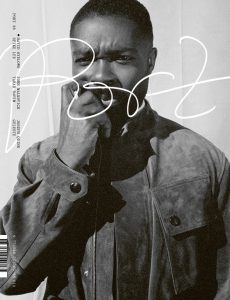
This article is taken from Port issue 36. To continue reading, buy the issue or subscribe head here
